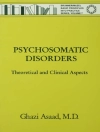Basic research discusses the implication of pancreatic stress protein in acute pancreatitis and pancreatic cancer and their possible role as therapeutic targets. Also, very original results show the unexpected role of lipids as mediators during acute pancreatitis. Gene screening strategies allow the detection of the genes responsbile for gemcitabine resistance of pancreatic cancer cells. They lead to the selection of several target genes, in order to suppress the resistance of cells to gemcitabine treatment. The mechanism by which tetrahydrocannabinol is anti-tumoral in pancreatic cancer cells is presented and the use of THC as a promising new therapeutic agent is discussed.
Genetic data are shown concerning hundreds of families with hereditary chronic pancreatitis and their possible role in the pathogenesis of the disease. Another very original study addresses the prevention and treatment of pancreatic diseases with diat.
In clinical research, convincing data about the use of endoscopic sphicterotomy in the management of acute bilary pancreatitis is presented, based on the experience of a Center highly specialized in pancreatic diseases.
Spis treści
Heat Shock Proteins in Pancreatic Diseases.- Cellular Stress in Acute Pancreatitis.- Systemic Inflammatory Effects of Acute Pancreatitis; Effects of Lipid Mediators.- Gemcitabine Changes the Gene Expression in Human Pancreatic Cancer Cells: Search for New Therapeutic Molecular Targets.- Cannabinoids as Potential Antitumoral Agents in Pancreatic Cancer.- Pathogenesis of Chronic Pancreatitis with Special Emphasis on Genes.- Bioecological Control of Disease, Especially Pancreatic Disease.- The Role of Endoscopic Sphincterotomy in the Management of Acute Biliary Pancreatitis.- Indication for Surgery in Acute Necrotizing Pancreatitis.












